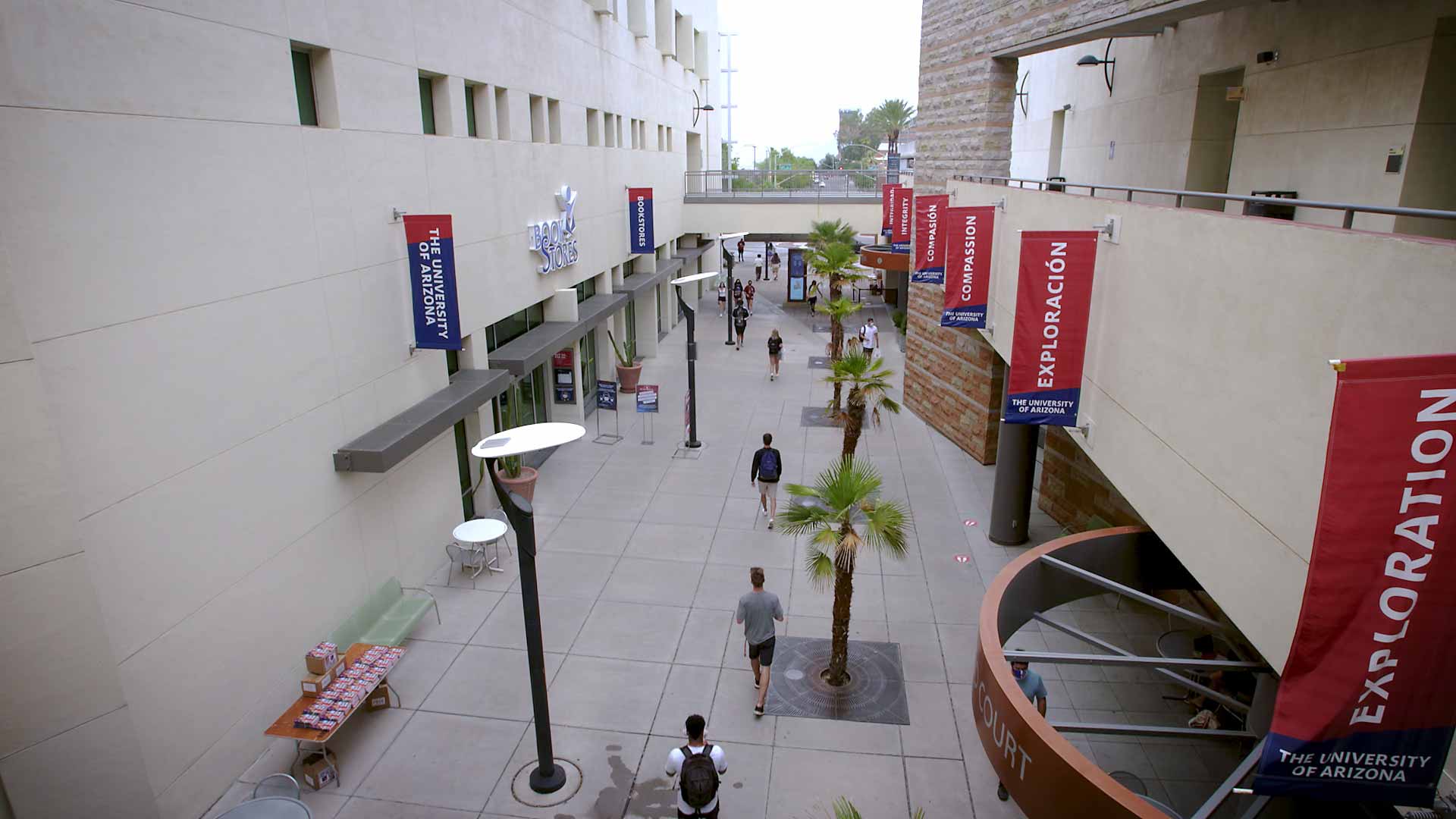 The Student Union Memorial Center at the University of Arizona.
The Student Union Memorial Center at the University of Arizona.
Paulina Mendoza, a Mesa resident, had just graduated high school in 2020 and was set to be the first in her family to attend college – until she wasn’t.
State law at the time prohibited undocumented immigrants like Mendoza from getting in-state tuition at one of the state’s universities, even though they lived in state. Mendoza could not afford school at the out-of-state rate, which is two to three times higher than the in-state rate, so her college dream was put on hold.
All that changed on Nov. 8, when voters narrowly approved Proposition 308, a measure allowing state residents to get the in-state tuition rate, regardless of their citizenship status. Mendoza plans to enroll in classes this spring to begin working toward a degree in psychology.
“It was an opportunity I never had before. I had no chance,” she said of the previous law. “I would be the first graduate in my family. My dad is raising five kids and I’m the oldest and we’re all dependent on his financial situation.”
And state colleges say they are prepared to begin accepting undocumented students as soon as this spring.
“It’s an incredible deal for Dreamers and undocumented immigrants to be able to get a better education, and we foresee a large number of students returning to our colleges,” said Chuck Coolidge, executive vice president of marketing and communications at the Maricopa County Community Colleges.
That was echoed by Arizona Board of Regents Chair Lyndell Manson, who said undocumented students can start qualifying for in-state tuition at state universities as early as January.
“I think this is a good step in the right direction to educating more people in our state,” Manson said.
Not everyone agrees. State Sen. Michelle Ugenti-Rita, R-Scottsdale, said the proposition sets a poor policy for the state.
“It isn’t solving anything. It’s stupid. That’s my opinion,” said Ugenti-Rita, who said there are larger immigration problems than just providing in-state tuition for undocumented residents.
“Giving undocumented students in-state tuition has nothing to do with the realities of what this country faces when it is trying to manage this border and deal with illegal immigration,” she said.
But voters disagreed, with 1.25 million voting for Proposition 308 and 1.19 opposing it, a margin of 51.2% to 48.8%.
It was a sharp reversal from 2006, when 71% of Arizonans voted to approve Proposition 300, which prohibited undocumented state residents from being classified as in-state students for the purpose of getting in-state tuition.
That measure was specifically reversed by Proposition 308, which says undocumented students are eligible for in-state tuition if they got their high school diploma in Arizona and have lived in the state for at least two years. Students will also be eligible for financial aid from the state universities.
At the Maricopa County Community Colleges, undocumented immigrants are now eligible to pay $85 per credit hour as in-state residents. The state’s universities extended a hand to undocumented residents in 2019 when they approved a policy that let them pay tuition at 150% of the in-state rate – that will fall back to the normal in-state rate in January.
Arizona had been one of three states, along with Indiana and Georgia, with laws denying in-state tuition to undocumented immigrants. Mendoza, who has been in the U.S. since she was 6 months old, said she didn’t get why she could not receive the same opportunities as other students before. She credits the change to a changing society.
“People are starting to understand us a bit more,” Mendoza said. “It’s not a political issue, it’s a chance to give everyone a chance to receive an education. We’re finally being heard.
“It’s just crazy how one person can make a difference. One vote. Every vote counted,” she said.
José Patiño said giving Dreamers and undocumented immigrants the ability to receive in-state tuition rates was long overdue. Under the old system, he said, it was “OK for them (undocumented students) to pay taxes, but not OK to receive the same benefits as you.”
“What does that mean?” asked Patiño, the vice president at Aliento, a group that helps undocumented immigrants in Arizona. “How do you want to treat individuals, just because they don’t have immigration status? Does that make them less than you?”
For Mendoza, who dreams of being a psychologist one day, it means an opportunity to make a difference for people in the same situation as her.
“I feel like it was time for undocumented students to finally get equality in a way because everyone deserves a higher education, no matter what immigration status they have,” she said.

By submitting your comments, you hereby give AZPM the right to post your comments and potentially use them in any other form of media operated by this institution.